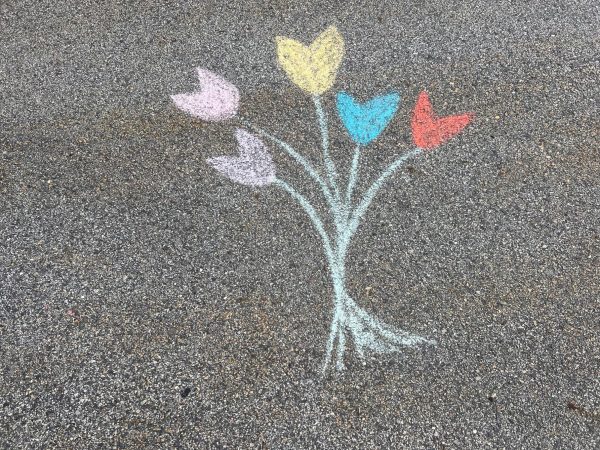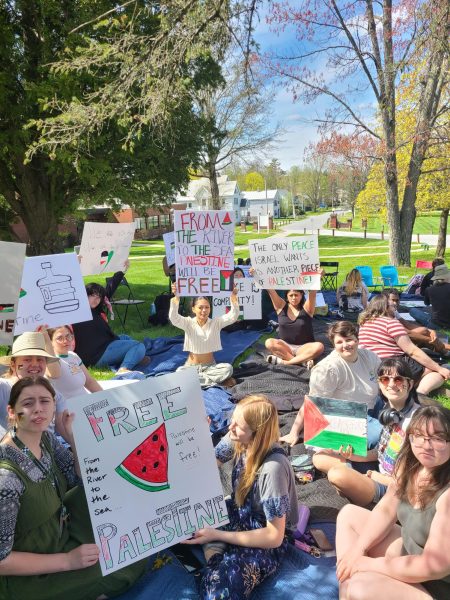Words of Wellness: Practicing gratitude
Winter is upon us. And with it, a visceral sense of transition- a tangible reminder of inescapable change. Although New England endures four seasonal shifts throughout the year, for some reason the move into winter can feel the heaviest. Life is literally slowing down. We find ourselves closing off. We literally add thick layers to our bodies, some of us metaphorically retreat into a sort of mid-level hibernation, and watch the wild world around us transition into something quieter, something more still…
So what does this mean for us? What does it mean for you? I often like to think of this time of year as a particularly opportune time to reflect. In November before the deep snow has fallen, when the clouds take on a gray hue blanketing the sky, there is a melancholy to the air. The trees are bare, and so is the earth. It is not so much a sadness but a realization that all things pass. The question for me then becomes what to make of change? How do we navigate a world in which most things come, and most things go?
As I talk to students it is a common theme, and one that I am not immune to — how to move through life and let life move through you in a way that feels connected and meaningful. The idea is broad, and expansive questions like this have been asked for millennia — people spend their entire lives devoted to living out these questions. But what if we, for the sake of this article- stop looking at macro, and take a moment to look at the micro? Is there potential for micro-moments to fill up our hearts with something meaningful each and every day. I’m a cynic at heart but even I have a hard time denying the possibility that the tiniest of interactions or moments can bring something for us to hang on to — even on our worst days.
Take a look around you as you move through the day. Notice. Be here, or there, wherever you are — try to intentionally be there in the moment. In John Bradshaw’s book entitled “Healing the Shame that Binds you” he has a poignant line that reads “We are human beings, not human doings.” It is trite to remind us all how busy life can feel. With exams, work, and homework, and all of the stress that may make us feel overwhelmed it is hard sometimes not to feel like a robot moving through our days.
This time of year can be particularly stressful. But whatever the workload, or daily agenda, if you are reading this article — you have the ability to pause and take an intentional deep breath. Do it, right now. Try to be a human being — be there. Feel your skin, feel the ground below you. You are here in this moment.
Now try and think of something you are grateful for. It can be anything. There is evidence to suggest there is power in gratitude. Dr. Randy Kaymen writes in her recent article entitled “The Transformative Power of Gratitude,” “Expressing gratitude improves mental, physical and relational well-being. Being grateful also impacts the overall experience of happiness, and these effects tend to be long-lasting.”
It may be hard to find something we are immediately grateful for. One suggestion that can turn this exercise into something habitual is writing down three things you are grateful for each day. Writing down things not to your thing? There’s an app for that. The app is called Gratitude Journal 365. It allows users to record what they are grateful for, but also allows users to take a picture instead of words for each day if words are not your favorite communication style. This is a skill that takes time and effort. We have to be intentional about this, but it is not time intensive and can have significant effects on our wellbeing.
It may seem pointless in doing activities like this. Where is the immediate return on our investment? You may not notice an immediate difference. But there is research to back this up. Dr. Kaymen writes, “Recording positive experiences boosts levels of alertness, enthusiasm, determination, attentiveness and energy, especially when compared to those who recorded or focused on negative events.”
So here, as you read this, if you can, think of something you are grateful for. Take a look up — look out the window, scan the room. Find something of beauty, or realness that you can let in to your inner world. If only for a moment. This can have a micro-effect on the 60 seconds it takes to do. And if done enough, can have a macro-effect on your well-being.
As I write this I think about the things I am grateful for in my moment. It is by and large a humbling gratitude towards the students I have met who have shared their stories with me. Sometimes I think students have an idea that counseling is a one-way street. There have been many times this semester that stories students have shared with me have changed me for the better. I am grateful for students’ courage to be open in these sessions, and although many may not realize — I find a motivating energy to be a better person as I listen. I value the depth of these stories, and find them incredibly rewarding moments in my own life.
As students move into the final weeks of the semester — I encourage all of us to take time to reflect on the things we have learned, and more importantly, make time to think about what we are grateful for. If it’s not a person, is it the way the snow blankets the softwood forests as you hike? Is it a warm cup of tea? A good book? A quick comment from a stranger? A silent moment without thought? A deep belly laugh? There are millions of moments out there. All we have to do is pause to catch them.



